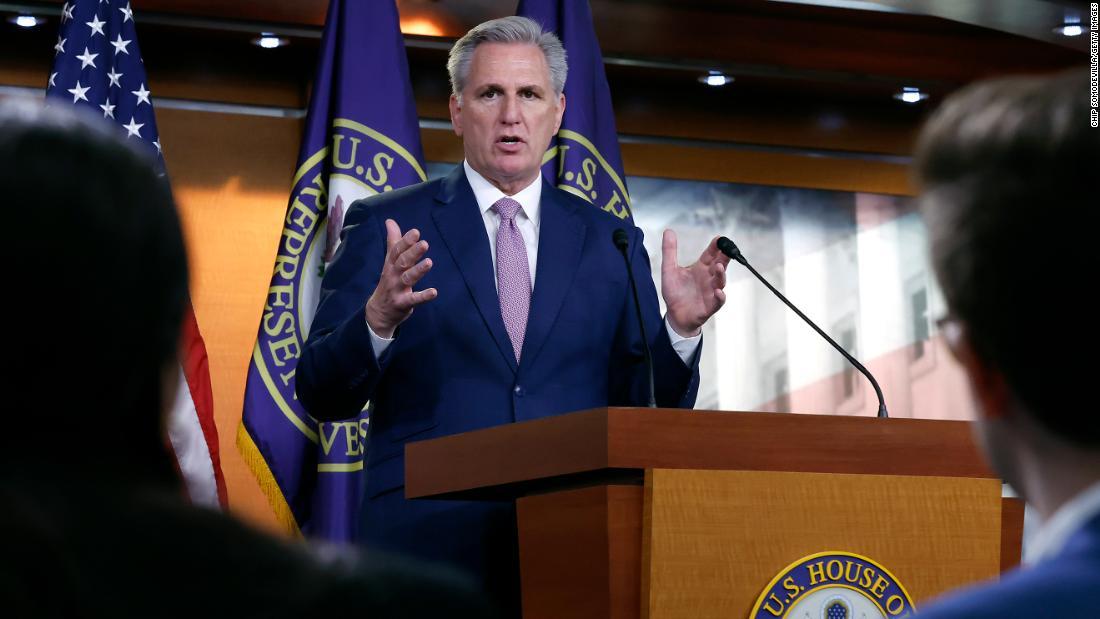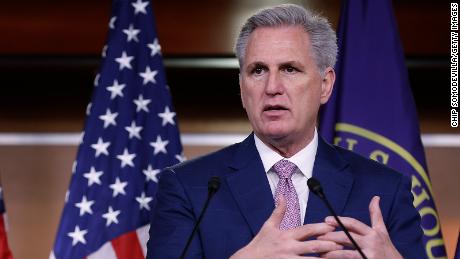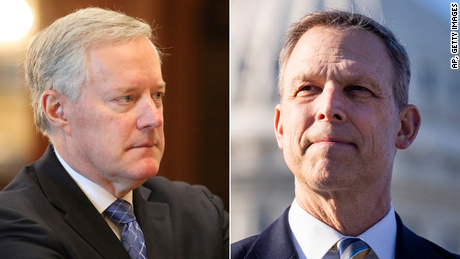
Days after the January 6, 2021, insurrection, McCarthy warned in a call with GOP leaders that several far-right members of the conference could incite violence at an incendiary moment in a country that was already “too crazy.”
Yet the tape released on Tuesday is remarkable because it shows that McCarthy and another top GOP House leader, Steve Scalise of Louisiana, knew that the storming of the Capitol by Trump’s mob was wrong and could flare up again. Their instinct to cool the rhetoric of colleagues targeting fellow lawmakers telling the truth about Trump’s election loss was the right thing to do.
But as almost always happens in the Trump era, personal ambition and a quest for power triumphed over prudence in the GOP.
McCarthy’s failure to do so explains the political incentive structure of the modern Republican Party, especially in the House, where Trump is still the most influential leader.
Any criticism of Trump, or the radical lawmakers who support him, could dash McCarthy’s hopes of winning the speaker’s gavel.
A political transformation
The last few days have confirmed McCarthy’s transformation into a standard bearer for Trumpism — despite his early criticism of the insurrection for which he initially said Trump bore some responsibility.
It’s a remarkable shift. Twelve years ago, McCarthy was seen as an urbane and up-and-coming prophet of a purer brand of ideological conservatism than the authoritarian populism Trump would eventually ride to power in 2016. He appeared on the cover of the book “Young Guns,” which he co-authored with fellow Republicans Paul Ryan and Eric Cantor.
As if he needed another reminder of what may lay in store for supposed disloyalty for Trump, McCarthy can look to Rep. Liz Cheney of Wyoming, from whom he is now estranged and in many ways helped to undermine.
Cheney, one of the leaders on last year’s call, paid with her job as the number three GOP leader in the House because she, unlike McCarthy, kept telling the truth about Trump’s lies and incitement. The Wyoming Republican, who now serves on the House select committee probing the January 6 insurrection, is facing a primary challenge from a Trump-backed candidate.
The contrasting choices and fates of McCarthy and Cheney are a commentary on the forces driving the Republican Party to ever more radical extremes and the enduring power of the once-and-possibly future President.
While the latest revelations about the possible future speaker’s inability to confront his members might alarm a broader electorate, his lax policing of his conference will not harm him inside the GOP.
Instead, his greatest liability lies in the fact that he once considered several pro-Trump lawmakers to be too extreme. Even if McCarthy is in Trump’s good graces for now, Greene, for example, has already warned that the minority leader will have to satisfy certain conditions if he is to get her vote for the top job. And in a statement Tuesday evening, Rep. Matt Gaetz of Florida — whom McCarthy and Scalise warned about on the call — called them “weak men, not leaders.”
Second drama to consume McCarthy in recent days
McCarthy may be popular among many other members of the House GOP, not least because he is a prodigious fundraiser. But although it would appeal to the ex-President to have a speaker who is in his debt, Trump’s support can be fickle. So pressure is rising on McCarthy to deliver a GOP win in November that would give him a majority wide enough to see off any challenges from the extreme right to his future campaign for speaker.
His accommodation with those members is also an insurance policy. McCarthy, for example, traveled to the southern border with lawmakers including Greene on Monday — a sign of his attempts to woo a sector of the party he once considered dangerous.
Among the first GOP reaction to the latest New York Times report was that of Scalise, who was captured on the call warning that Gaetz’s attacks on fellow Republicans like Cheney might be crossing a legal line.
The House Republican whip, Scalise is particularly aware of the danger posed to lawmakers from violence. He fought bravely back to health after being seriously injured in a shooting at a congressional baseball practice in 2017.
He told reporters on Tuesday that he hadn’t seen the latest Times report, based on the forthcoming book by Burns and Martin titled “This Will Not Pass: Trump, Biden and the Battle for America’s Future.”
But he added: “It’s not surprising that the liberal media wants to keep talking about January 6, because they don’t want to focus on all the crises that President Biden’s created from inflation to gas prices to the border.”
The Louisiana lawmaker’s judgment about media motivations might have been off the mark. Yet his political argument has merit — up to a point.
By November, the minds of American voters may well be far from the fears and subsequent behavior of Republican leaders after the Capitol insurrection, which will by then be almost two years distant.
High inflation and elevated gas prices are causing misery — a theme GOP campaign ads are pushing. Soaring costs for basic items have defied the Biden administration’s off-the-mark promises that inflation would be transitory. And warnings of a possible recession will worsen a national funk that could sweep congressional Democrats out of power.
That makes it even more important to examine the character of the possible future Republican majority.
After all, it’s now clear that McCarthy and top lieutenants feared that members of their party — who could have an outsize influence on the lives of Americans next year — were a security risk.
“This is serious sh*t,” McCarthy said on the January 2021 call.
Either he doesn’t seem to believe that anymore or his political ambitions are more important.

